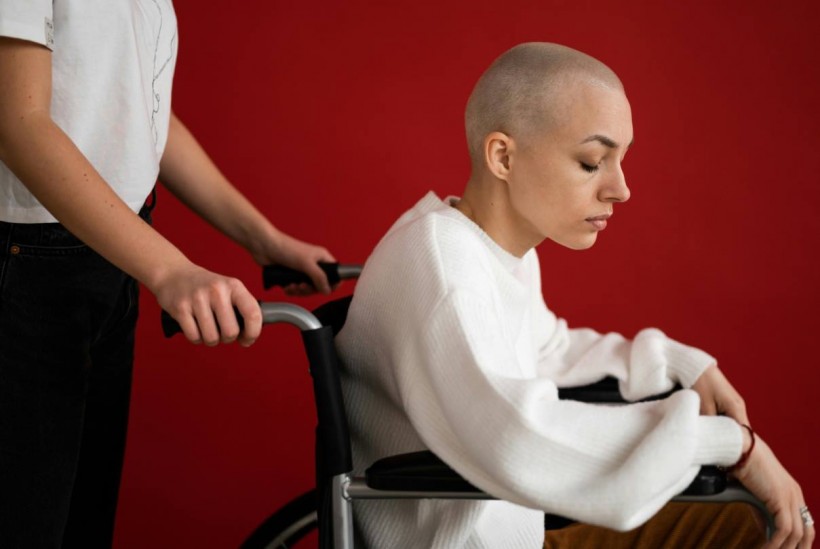Inequities in Cancer Care: Addressing Disparities and Improving Access
Warning: Undefined variable $post in /home/dietofli/public_html/wp-content/plugins/code-snippets/php/snippet-ops.php(582) : eval()'d code on line 3
Warning: Attempt to read property "ID" on null in /home/dietofli/public_html/wp-content/plugins/code-snippets/php/snippet-ops.php(582) : eval()'d code on line 3
The estimated reading time is 5 minutes
Warning: Undefined variable $post in /home/dietofli/public_html/wp-content/plugins/oxygen/component-framework/components/classes/code-block.class.php(115) : eval()'d code on line 3
Warning: Attempt to read property "ID" on null in /home/dietofli/public_html/wp-content/plugins/oxygen/component-framework/components/classes/code-block.class.php(115) : eval()'d code on line 3

The landscape of cancer care is marked by groundbreaking advancements and innovations. Yet, a persistent challenge looms over the healthcare realm – the glaring inequities that dictate access to vital cancer services.
Disparities rooted in demographic, socioeconomic, and geographical factors shape the trajectory of cancer outcomes for individuals across diverse communities.
This article highlights the multifaceted barriers that hinder equitable healthcare delivery. It will shed light on strategies and advocacy efforts aimed at building a more accessible and equitable landscape in cancer care.
Understanding the Problem
According to the National Institutes of Health (NIH), specific populations face formidable barriers to healthcare access. This leads to pronounced disparities in cancer screening, diagnosis, and treatment adherence.
Individuals grappling with low incomes, limited health literacy, and substantial travel distances to screening sites encounter hurdles in receiving cancer treatments. Those without reliable access to healthcare often receive diagnoses at later stages, hindering effective intervention. Environmental factors further compound disparities, with communities lacking clean water and air exposing residents to cancer-causing substances.
In the United States, disconcerting statistics underscore these disparities. For instance, Black/African American individuals exhibit higher death rates for numerous cancer types. Black/African American women face heightened mortality from breast cancer despite comparable incidence rates.
Rural Appalachia experiences elevated incidence rates of colorectal, lung, and cervical cancers compared to urban areas. Distinct racial and ethnic groups, including Hispanic/Latino and Black/African American women, bear disproportionate burdens in cervical cancer rates and mortality.
Moreover, American Indians/Alaska Natives face higher death rates from kidney cancer, emphasizing the urgency of addressing disparities in care.
Efforts to Improve Access to Care
Initiatives aimed at enhancing care within underserved communities include:
Community Outreach and Engagement
Community outreach acts as a catalyst for positive change on both global and local scales. "Close the care gap," amplifies the Pan American Health Organization (PAHO) call for unified action to bridge disparities in cancer care. This global initiative underscores the urgent need for strengthened efforts to enhance access to quality care.
It encompasses critical components such as screening, early detection, treatment, and palliative care.
On a grassroots level, community-based initiatives play a pivotal role in ensuring that education about the disease is widespread and accessible. Outreach programs designed to engage diverse communities serve as powerful tools for disseminating information about available support services.
Additionally, partnerships forged with community organizations enhance the impact of these initiatives, building a sense of collective responsibility.
Health Literacy and Education
Health literacy emerges as a linchpin in the complex landscape of cancer care, influencing prevention, diagnosis, and treatment decision-making. Adequate health literacy empowers individuals to comprehend risks, recognize symptoms, and make informed choices about screening and treatment options.
In marginalized communities, however, disparities in health literacy contribute to delayed diagnoses and hindered access to quality care. Bridging this gap requires multifaceted initiatives aimed at enhancing education and awareness.
The University of Indianapolis notes that nurses play a pivotal role in bridging health literacy gaps, acting as frontline educators and advocates. Their responsibilities include providing comprehensible information, clarifying medical jargon, and supporting patients in navigating treatment decisions.
Nurses promote open communication, address questions, and address a collaborative approach to cancer care.
An online university for nursing plays a vital role in equipping healthcare professionals, including nurses, with the necessary knowledge and skills. These platforms offer flexible learning opportunities, enabling nurses to stay abreast of the latest advancements in cancer care.
Ultimately, these platforms enhance the caregiver's capacity to educate and empower patients, particularly in communities where health literacy disparities persist.
Policy Advocacy and Healthcare Reform
Recognizing the urgency for change, the National Comprehensive Cancer Network (NCCN) has emerged as a proactive force. It has presented groundbreaking recommendations for screening and addressing health-related social needs (HRSN) in individuals with cancer.
The initiative, marked by a policy summit in Washington, D.C., signifies a collaborative effort involving diverse stakeholders, including patient advocates, providers, and policymakers.
PR Newswire notes that the NCCN's recommendations encompass four core measurements: transportation access, housing security, access to food, and financial security. These metrics will be assessed annually and at every care transition point. The metrics underscore the pressing need to address the broader determinants of health that significantly impact cancer outcomes.
In tandem with such initiatives, broader policy changes are imperative. They may encompass increased funding for cancer prevention and expanding access to healthcare coverage.
As the healthcare system grapples with the complexities of cancer care, policy advocacy emerges as a catalyst for transformative change. It aims to build a healthcare framework that champions equity and accessibility for all individuals affected by the disease.
Research and Data Collection
Ongoing research and comprehensive data collection are foundational pillars in the quest to uncover and rectify disparities within cancer care. The significance of systematically gathering data lies in its power to illuminate patterns, identify inequities, and inform evidence-based interventions and policies.
These insights contribute to a deeper understanding of the root causes of disparities and pave the way for targeted interventions. The commitment to rigorous research and data collection functions as a compass that guides the trajectory toward a more equitable healthcare landscape.
In conclusion, the journey to achieving equity in cancer care demands a multifaceted and concerted effort. As we navigate the complexities of cancer care, it becomes evident that no single approach suffices.
By weaving together these strands of knowledge, advocacy, and compassion, we lay the foundation for a more equitable future in cancer care. The key lies in sustained efforts, ongoing research, and a collective commitment to dismantle barriers. In this shared pursuit, we move closer to a healthcare landscape where the promise of health equity becomes a reality for all.














